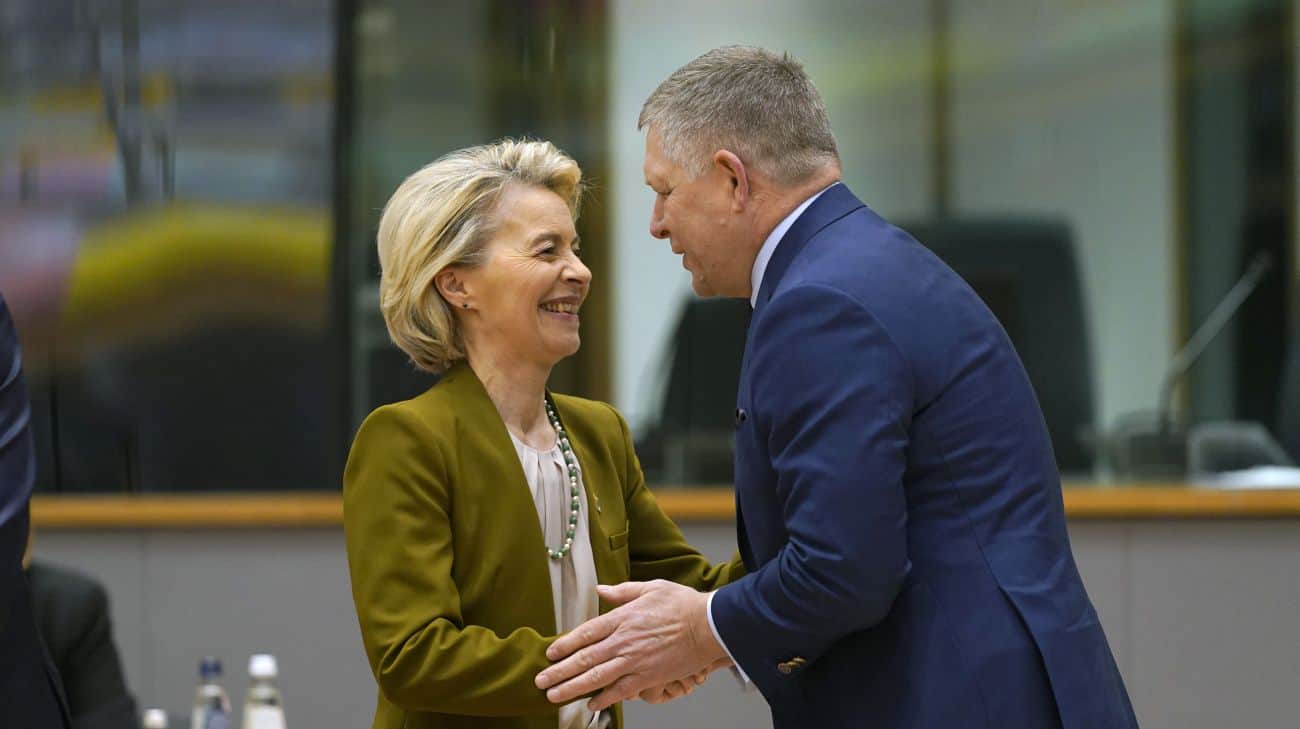Trump denies that he will pare back universal tariffs
President-elect Donald Trump denied Monday that he is considering paring back his plan for universal tariffs on imports, after the Washington Post reported his team is considering raising tariffs only on "critical" imports related to national defense, energy and other key sectors. “The story in the Washington Post, quoting so-called anonymous sources, which don't exist, incorrectly states that my tariff policy will be pared back,” Trump wrote on his social media platform Truth Social. “That is wrong. The Washington Post knows it's wrong. It's just another example of Fake News.” Quoting three “people familiar with the matter,” the Post reported that President-elect Donald Trump’s aides are exploring tariff plans that would be applied to every country but not all imports. Trump pledged on the campaign trail that he would slap tariffs of between 10 and 20 percent on all foreign goods entering the U.S. The exact list of which imports or industries would face tariffs was not immediately clear, but preliminary discussions have largely focused on several key sectors that the Trump team wants to bring back to the United States, the people told the Post. Those include the defense industrial supply chain (through tariffs on steel, iron, aluminum and copper); critical medical supplies (syringes, needles, vials and pharmaceutical materials); and energy production (batteries, rare earth minerals and even solar panels), two of the people told the Post. Context: The report reflects the lack of concrete information about Trump’s tariff plans just two weeks before he is sworn into office. The business community is braced for Trump to issue a series of executive orders shortly after returning to the White House, but the specific details remain unclear. On the campaign trail, Trump also promised to impose a 60 percent tariff on all Chinese goods and to phase out imports of essential goods from China over four years. Since being reelected in November, he’s threatened to impose a 25 percent tariffs on goods from Mexico and Canada to pressure those countries into taking action on illegal migration and fentanyl entering the United States. He’s also threatened to impose a 10 percent tariff on China because of concerns about their role as a source of fentanyl. Economists have warned that Trump’s tariff plans would raise costs for businesses and consumers, hampering another campaign promise to reduce inflation.
President-elect Donald Trump denied Monday that he is considering paring back his plan for universal tariffs on imports, after the Washington Post reported his team is considering raising tariffs only on "critical" imports related to national defense, energy and other key sectors.
“The story in the Washington Post, quoting so-called anonymous sources, which don't exist, incorrectly states that my tariff policy will be pared back,” Trump wrote on his social media platform Truth Social. “That is wrong. The Washington Post knows it's wrong. It's just another example of Fake News.”
Quoting three “people familiar with the matter,” the Post reported that President-elect Donald Trump’s aides are exploring tariff plans that would be applied to every country but not all imports. Trump pledged on the campaign trail that he would slap tariffs of between 10 and 20 percent on all foreign goods entering the U.S.
The exact list of which imports or industries would face tariffs was not immediately clear, but preliminary discussions have largely focused on several key sectors that the Trump team wants to bring back to the United States, the people told the Post.
Those include the defense industrial supply chain (through tariffs on steel, iron, aluminum and copper); critical medical supplies (syringes, needles, vials and pharmaceutical materials); and energy production (batteries, rare earth minerals and even solar panels), two of the people told the Post.
Context: The report reflects the lack of concrete information about Trump’s tariff plans just two weeks before he is sworn into office. The business community is braced for Trump to issue a series of executive orders shortly after returning to the White House, but the specific details remain unclear.
On the campaign trail, Trump also promised to impose a 60 percent tariff on all Chinese goods and to phase out imports of essential goods from China over four years.
Since being reelected in November, he’s threatened to impose a 25 percent tariffs on goods from Mexico and Canada to pressure those countries into taking action on illegal migration and fentanyl entering the United States. He’s also threatened to impose a 10 percent tariff on China because of concerns about their role as a source of fentanyl.
Economists have warned that Trump’s tariff plans would raise costs for businesses and consumers, hampering another campaign promise to reduce inflation.



